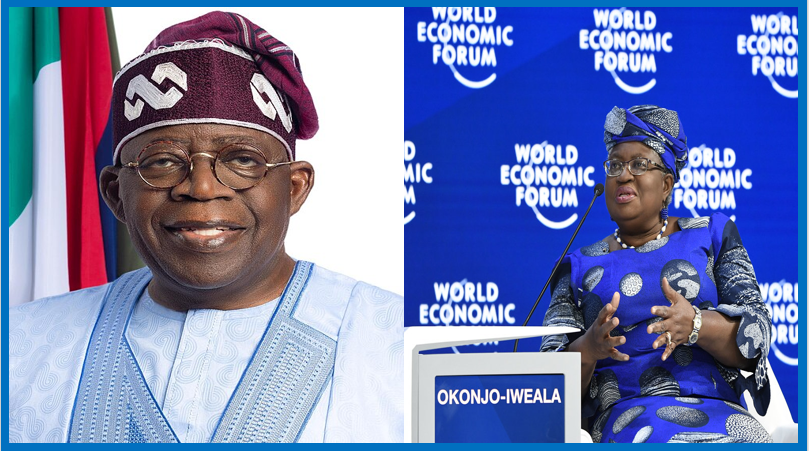Calls Grow for Immediate Relief Measures Amid Soaring Food Prices
Abuja, Nigeria — August 2025
The Director-General of the World Trade Organisation (WTO), Dr. Ngozi Okonjo-Iweala, has acknowledged the stabilizing impact of President Bola Ahmed Tinubu’s economic reforms, but warned that many Nigerians continue to face severe hardship as a result of these policies. Her remarks have intensified calls from economists, civil society groups, and opposition figures for urgent measures to alleviate the burden on ordinary citizens.
Economic Reforms: Stabilization with Pain
Speaking after a meeting with President Tinubu at the State House in Abuja, Okonjo-Iweala noted that the administration’s reforms—such as fuel subsidy removal, exchange rate unification, and fiscal tightening—have helped stabilize macroeconomic indicators and restore investor confidence. However, she emphasized that these gains have come at a steep cost to the population.
“Whilst my perception is that the ongoing reforms are in the right direction and the economy is now stabilizing, there is a need to focus on building more social safety nets and growing the economy,” she wrote in a post on X.
Urgent Need for Social Protection
Okonjo-Iweala stressed the importance of targeted programs to support the poor and vulnerable, including:
- Expanded social safety nets to cushion the impact of inflation and subsidy removal
- Job creation initiatives to boost employment and income levels
- Support for women entrepreneurs, such as the WTO–ITC WEIDE Fund, which empowers women to trade digitally and participate in the global economy
“Putting in place more programs to help people—especially poor and vulnerable people—manage the hardship is very important,” she added.
Rising Food Prices and Public Outcry
Her comments come amid growing public frustration over the soaring cost of living, particularly food prices. Market surveys show that staple items such as rice, yam, and cooking oil have doubled in price since mid-2024, pushing millions into food insecurity.
Several critics and observers have urged the government to:
- Introduce emergency food subsidies or price controls
- Expand agricultural support programs to boost local production
- Suspend or revise certain tax policies that disproportionately affect low-income households
Broader Economic Context
Since taking office in 2023, President Tinubu has pursued aggressive reforms aimed at liberalizing Nigeria’s economy. While these moves have been praised by international institutions for promoting fiscal discipline, they have also triggered inflation, reduced purchasing power, and strained household budgets.
Okonjo-Iweala’s intervention is seen as a balanced endorsement of reform, coupled with a strong call for inclusive growth and human-centered policy design.
“This is a critical moment for Nigeria. Stabilization must be followed by compassion. Economic reform without social protection risks deepening inequality and eroding public trust,” said a senior economist at the Nigerian Economic Summit Group.
Pictured, President Tinubu by Nosa Asemota and Ngozi Okonjo-Iweala by WEF


